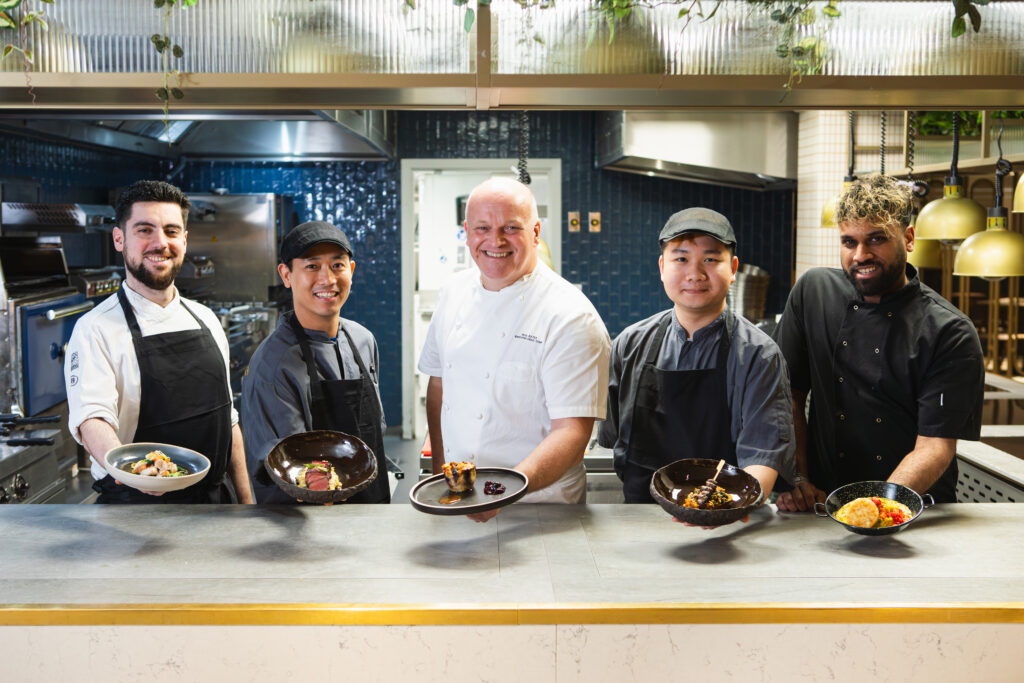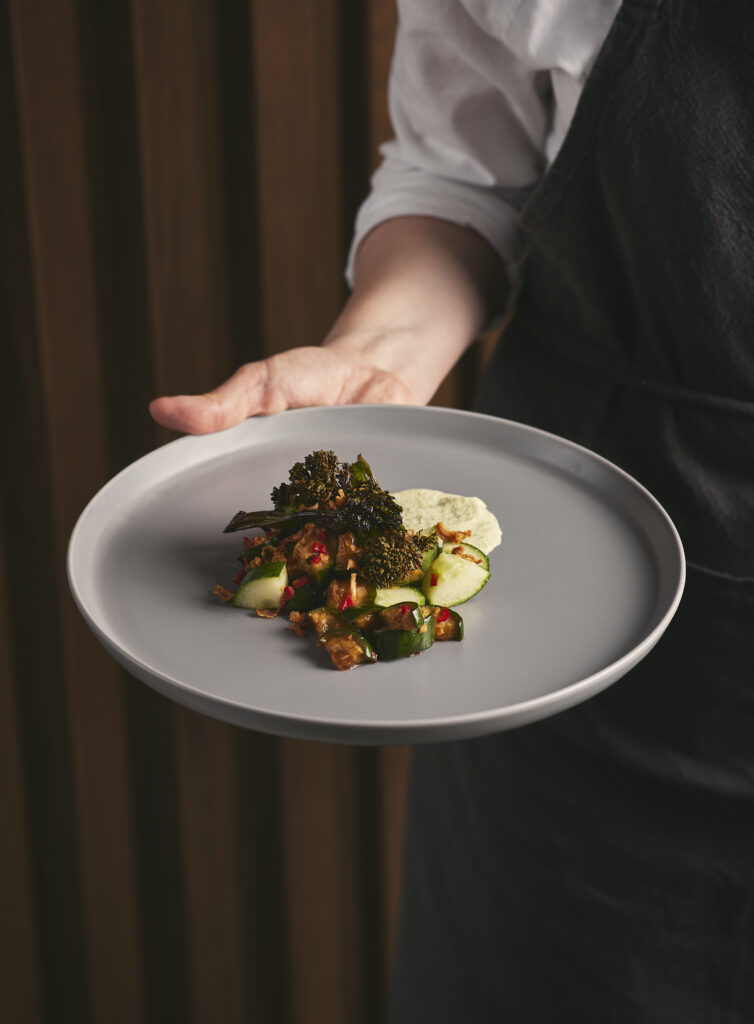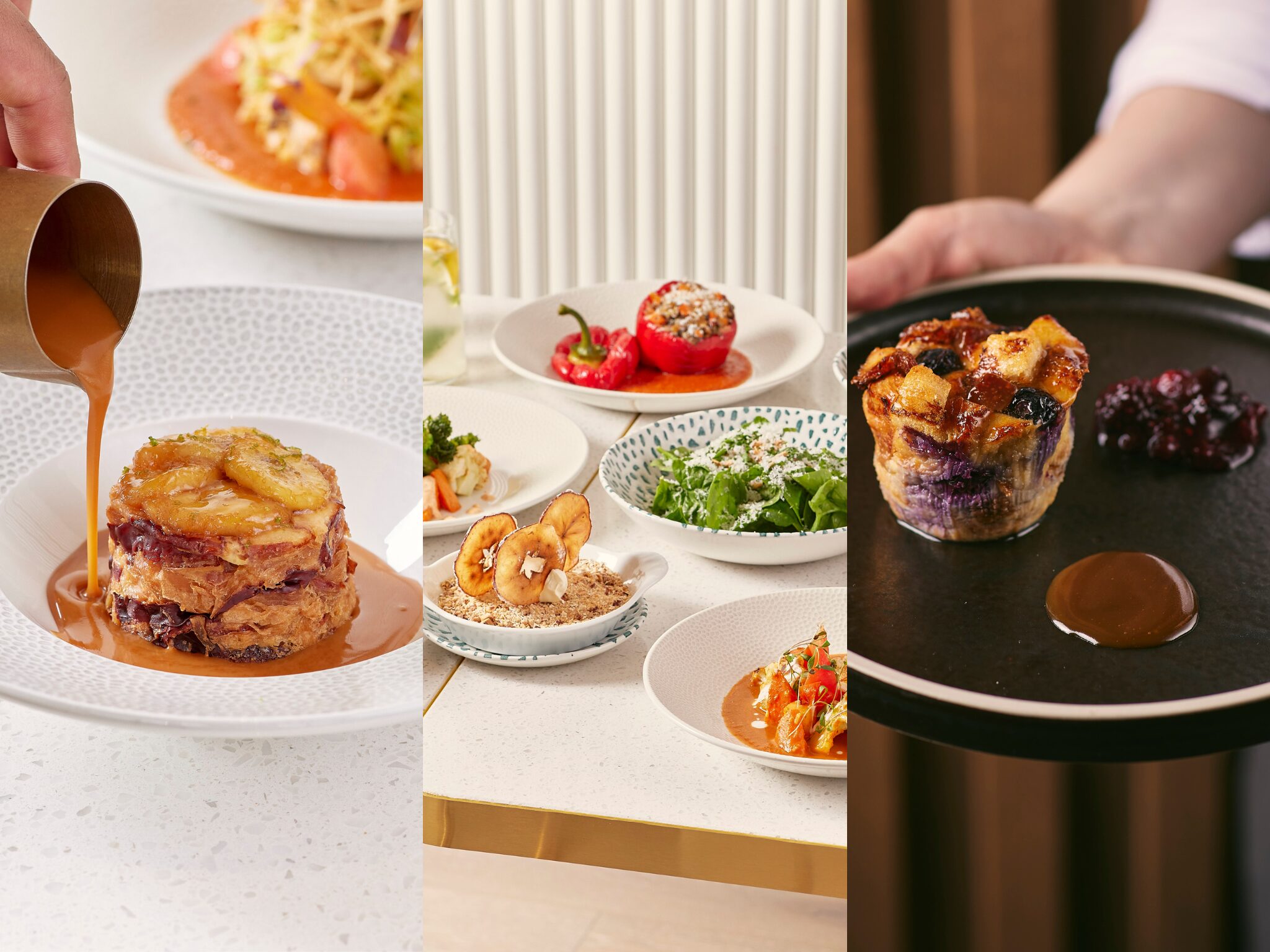4 Mins Read
Hilton has rolled out zero-waste menus at four of its hotels in the UK as part of its ESG strategy, alongside a low-waste menu at nearly 20 additional sites.
On Stop Food Waste Day (April 24), Hilton launched zero-waste menus at multiple UK locations, which will run for the next month and feature offerings like vegetable stalk sauces and bruised fruit cocktails. This is in addition to a new low-waste menu that will be implemented at 18 of its UK sites.
As one of the world’s largest hospitality operators, it has set out a target to halve waste sent to landfill by 2030 (from a 2008 baseline), and implement a food waste reduction programme in every hotel kitchen. The initiative will see chefs at London Hilton on Park Lane, Hilton Manchester Deansgate, Hilton London Metropole, and DoubleTree by Hilton Brighton Metropole curate zero-waste dishes.
“As chefs, we are the catalysts for positive change and have the opportunity to set the bar for sustainable dining,” said Paul Bates, executive head chef at the London Metropole hotel, where the menu costs £40. “Our menu inspires diners to embrace new flavours, while empowering them to lead the charge when it comes to tackling food waste.”
From breakfast buffet puddings to food waste pickles

Food waste is one of the most pressing climate change challenges. According to the UNEP’s latest Food Waste Index Report, more than a billion tonnes of food is thrown out each year, which equates to a third of all food that makes it into our kitchens (this excludes the 13% of food lost to spoilage, rejection or other factors in the supply chain).
While households account for a majority of this share (60%), the foodservice sector is responsible for a sizeable chunk too (28%), binning 131 million tonnes of food. The UNEP estimates that food waste is responsible for 8-10% of all emissions, and climate experts have highlighted the need to decrease this by half by 2030. Separate research has shown that hotels waste 79,000 tonnes of food annually, and the hospitality industry alone accounts for 12% of all food wasted.
This underscores the importance of Hilton’s waste-free menus, titled Taste of Zero Waste, although why this is a month-long initiative and not a permanent one remains unclear. The dishes harness a range of culinary techniques that serve as a way to show commercial food operators how simple steps can either eliminate or significantly reduce food waste.
These involve root-to-shoot and nose-to-tail cookery, where often unused parts of meat and seafood like salmon cheeks and ox hearts are utilised, alongside repurposing produce scraps like vegetable stalks, trimmings and peelings (which can be fermented to make sauces and stocks, or used to make chips or top risottos) and bruised or overripe fruits for cocktails.
Hilton’s hotels will also substantially reduce food waste from breakfast buffets by using pastries, bread, fruit and coffee beans to create puddings. Another technique involves collecting surplus fruits and vegetables destined for the bin and preserving them through pickling.
“These dishes have been designed to demonstrate the best-in-class techniques in use across our hotels all over the world every day – brought together to raise awareness of our ambition to continue reducing food waste across our operations, simultaneously empowering guests to make more mindful choices and inspiring them to reduce waste in their own kitchen at home,” said Emma Banks, F&B strategy and development VP at Hilton Europe, Middle East and Africa (EMEA).
Hilton’s food waste commitments build towards net zero

The Taste of Zero Waste menus build upon Hilton’s numerous food waste initiatives. This includes Winnow, the British AI-led platform that tracks, measures and reduces food waste in commercial kitchens. It has helped over 200 hotels make these cuts, with some Middle Eastern Hilton hotels experiencing a 61% drop in breakfast waste.
In the UK, Hilton works with local suppliers to reduce food miles and ensure the year-round use of seasonal produce. One such farm is Growing Field, which supplies all vegetables and herbs for the restaurant at Manchester Deansgate, providing a list of what’s available each week.
The London Metropole site has been working with surplus food charity the Felix Project since 2020, when its kitchen was turned into a community hub during the pandemic and prepared thousands of meals for those in need, all the while using up surplus food. To date, the hotel has provided 75,000 meals as part of the collaboration, which will now see a meal donated for every dish purchased from the Taste of Zero Waste menus.
“The launch of these new menus marks another step in the global fight against food waste,” said Banks. “Conscious dining isn’t just a trend; it’s a deeply held value that guides where we all choose to indulge and unwind.” Over the coming year, the hotel giant – which has set a net-zero target for 2030 – plans to roll out the zero- and low-waste initiatives across its EMEA sites, 67 of which have adopted food waste reporting systems.




